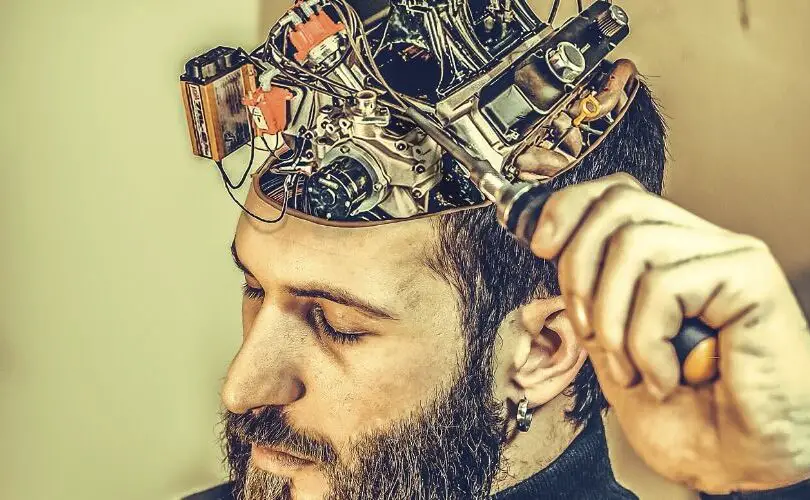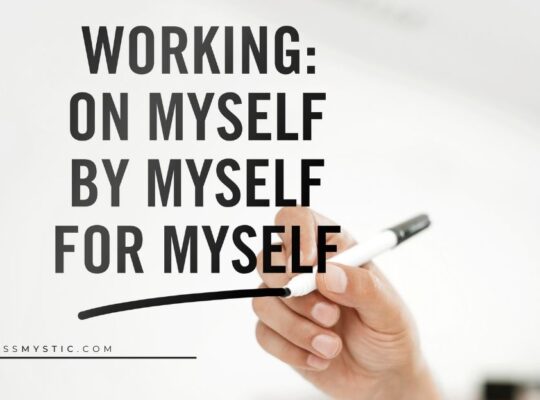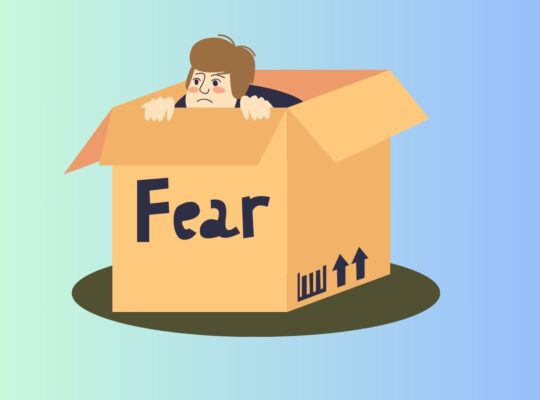While everyone focuses on other aspects of health, they often forget just how vital brain health is. It’s important to exercise and eat right in order to keep the body healthy, but being in good health doesn’t just mean physically, it includes mental and cognitive health.
You don’t necessarily need to make major changes in your lifestyle, if you’re already eating well and exercising regularly, you’re on the right path.
Your brain loses elasticity as you age, which makes it more difficult for the brain to make the required connections. This often results in difficulty focusing, recalling memories, and an inability to focus and pay attention.
You can prevent this from happening, by keeping your brain healthy. A healthy brain will retain its elasticity, allowing you to continue learning and retaining memories well into your senior years, that is, provided you treat it right.
Your mental health is just as vital to your overall health and wellbeing as your physical healthy is. Just because your school (or work) days are over, doesn’t mean there’s nothing left to learn.
Your brain will change and shift throughout your life, and you can control how change occurs. There are plenty of ways to maintain your brain’s ultimate health, and unlock your potential.

Discover the SECRET Technique for Unlocking Your Inner Genius. Download your FREE ‘Chat with a Genius’ workbook, MP3 and video! (RSP $19.95). → Claim Your Copy Free
Related Posts:
- How to reprogram your brain for Growth Mindset. → Read This
- Steal The Genius Of Einstein, Warren Buffet, DaVinci, and Rachmaninov. → The Raikov Effect
- Change your brain with self hypnosis. → Read This
- 7 ways to boost your brain power immediately. → Read This
- 40 Worst Habits for Your Mental Health. → Read This
50 Tips For Brain Health – Effective Strategies and Hands-On Solutions
- Meditation – It is incredibly difficult to think when you have a head full of worry and concern. Meditation is an excellent way to promote brain health, as it reduces anxiety levels. It has also been shown to improve decision making skills, memory, and attention span. Additionally, it has physical health benefits. According to UCLA, practitioners of meditation have greater cognitive abilities, due to the increase in the gyri formation, which are folds that increase the brain’s surface area.
- Feed Your Brain – According to the University of Maryland Medical Center, fish is the brain’s ultimate food, all because of omega-3 fatty acids. They contain anti-inflammatory and anti-cancer properties, reducing the risk of stroke and improving brain function. It can also reduce the risk of depression, bipolar disorder, and dementia.
- N Backs – Working memory tasks (or n backs) are an assessment tool that is used to evaluate short-term memory. The n back is the cornerstone of exercises for the brain, and a great method for improving fluid intelligence. The tasks demand you to juggle a variety of tasks mentally and simultaneously. Cognitive Neuroscience Society published the results of experiments from the University of Maryland’s Susanne Jaeggi. Jaeggi found that those who engaged in n backs for 20 minutes a day for a month got better at the tasks, and improved their performance on other tasks not involved in the training. There are plenty of n back apps available for both Apple and Android phones.
- Leafy Green Vegetables – Leafy greens contain vitamins and minerals that prevent dementia. Just like spices, leafy greens are rich in polyphenols, which protect the brain from disease and injury. According to the RMIT University in Australia, polyphenols can prevent strokes, and delay the symptoms of Alzheimer’s and Parkinson’s.
- Eat Nuts – If squirrels had the ability to talk, they would probably brag about how amazing nuts are for brain power. Nuts (and seeds) are chockfull of zinc, which, according to the University of Lancashire, is effective in improving cognitive function. Nuts also contain vitamin E, which is an antioxidant that boosts cognitive function.
- Vitamin B12 and Folic Acid – The B complex vitamins play an important role in overall health and wellbeing. B12 protects the brain from injury and disease, while folic acid regulates development and neurotransmitter activity.
- Complex Carbohydrates – A glucose deficiency can affect your ability to think clearly and concentrate, your brain needs it. Increasing your intake of complex carbs will increase alertness. Don’t turn to energy drinks, instead choose oatmeal, brown rice, and whole-wheat bread, these provide you with energy all day long.
- Coffee – Caffeine is a natural stimulant, and in coffee, you have the ability to activate the area of the brain, which improves cognitive functioning. Better yet, it’s packed with antioxidants, which promote neuron recovery from stress and injury. Research from Johns Hopkins University suggests that just an 8-ounce cup of Joe is sufficient to boost short-term memory and improve attention.
- Apples – You’ve heard that an apple a day is a great way to keep the doctor at bay? Well, it’s also an excellent way to stave off memory loss. Apple skins contain quercetin, which according to one study (The neuroprotective potential of flavonoids: a multiplicity of effects; Vaouzour, et al) is a chemical that provides neuroprotective properties to battle cell damage. You can also find quercetin in parsley, red wine (yes), citrus fruits, tea, sage, and onions.
- Navigation – Studies from the University College London show that London taxi drivers have a larger hippocampus than others do (in the case of this study, the other group studied was bus drivers), because their brains expanded to make space for their additional knowledge. Taxi drivers are focused to use their brains to navigate routes, while bus drivers travel a specific route. So, forget GPS, use your brain to navigate the next time you’re going somewhere new.
- Grape Juice – Like chocolate, polyphenols are found in grape juice. According to WorldHealth.net, grape juice is an effective way to maintain short-term memory. We know that polyphenols enhance memory, learning abilities, and the communication of neurons. The great news is that it can even help those in their later years.
- Chewing Gum – According to Cardiff University’s School of Psychology (Effects of chewing gum on cognitive function, mood, and physiology in stressed and non-stressed volunteers), chewing gum is an excellent way to improve mood, attention, and cognitive function. In addition to its ability to improve cognitive abilities, it’s also a fantastic way to relieve stress.
- Eggs & Chicken – It really doesn’t matter which one of these came first, what does matter is that they are an excellent source of choline, which is the antecedent molecule of acetylcholine. The latter improves cognitive performance, memory, and regulates body functions. According to Boston University, (The Role of Acetylcholine in Learning and Memory, Michael E. Hasselmo) in addition to its role in cognitive function, acetylcholine can prevent depression and anxiety.
- Dark Chocolate – Dark chocolate contains flavanols, which provide a short burst of a boost in cognitive abilities. Additionally, cocoa contains polyphenols, which can prevent the impairment of cognitive function found in the aging. Consuming 25 grams of sugar can provide a much-needed boost in memory and alertness. Glucose is essential for the brain, so the next time you feel your sweet tooth taking over, turn to dark chocolate.
- Milk – A glass of milk every day is an excellent way to improve thinking skills and boost memory. A study (Relation between dairy food intake and cognitive function: The Maine-Syracuse Longitudinal Study; Crichton, et al) from the University of Maine and University of South Australia, Adelaide found that adults who drink milk five or six times every week have a better memory than non-milk drinkers.
- Cardio – Exercise isn’t just a way to keep your body healthy, it keeps your brain in top form, too. According to The National Institutes of Health (Exercise and the brain: something to chew on), evidence shows cardiovascular exercise has deep benefits to the brain. Not only does it delay cognitive breakdown, but it enhances memory and learning.
- Bulk Up – Bulking up isn’t just a way to tone and improve your muscles, it also increases mental capacity. Resistance exercise improves cognitive function and spatial memory.
- Dance – While there isn’t any evidence that dancing can reduce the risk of dementia, those who enjoy dancing regularly experience fewer symptoms. Besides, it’s fun, it’s exercise, and it’s an excellent way to improve your coordination.
- Golf – Golf is a great way to develop coordination, as well as spatial differentiation. Golf encourages the formation of nerve cells and neuroimaging shows that golfers have structural changes in the white and gray area of the brain.
- Music & Exercise – Music gets you motivated and pumped to exercise, but beyond that, it kindles cognitive function as you work out. A study (Short-term effects of exercise and music on cognitive performance among participants in a cardiac rehabilitation program; Emery, et al) from Ohio State University found that combining exercise and music improved the verbal fluency of heart patients.
- Lawn Mower – Not only is mowing the lawn a great way to stay active, but it releases chemicals to boost memory and relieve the symptoms of stress.
- Doodling – Just because you’re doodling, doesn’t mean you’re not listening. Doodling stimulates the brain, rather than being a mindless activity. Once upon a time, journalists were stunned to discover that Tony Blair left papers covered in doodles after participating in a panel with Bono, Bill Gates, and Bill Clinton.
- Wandering Mind – If your mind wants to drift, don’t worry, because it’s not a bad thing. You should allow your mind to drift (unless of course you’re driving, or… operating), because it is in those moments that it increases your ability to solve problems and boosts creativity.
- Eat Less – Reducing your calorie intake won’t just decrease your weight, it will also reduce the risk of neurodegenerative diseases.
- Laugh – Laughter is the best medicine, and it’s a great way to cope with the symptoms of depression and anxiety. A big laugh increases oxygen to the brain and also allows people to think more creatively as they laugh problems off. A sunny temperament improves creativity and cognitive performance.
- Video Games – Regardless of the type of video game you enjoy, it’s great for improving spatial orientation, multitasking, and vision. It’s also an excellent way to improve reaction time. 27. Chess – Multiple studies (On the effect of chess training on scholastic achievement, William M. Bart) suggest that children who play chess for just two hours a week display enhanced mathematical and verbal skills. Despite the fact that there are no verbal communications during the game, chess improves skills by employing every ability.
- Read – Reading keeps the brain stimulated, but you can take it to the next level and improve cognitive function by tackling difficult reading material. Don’t worry, you don’t need to start reading complicated medical texts or anything like that. Mystery novels are an excellent way to increase the capacity of your brain, because there is mystery, intrigue, and storylines tend to be highly involved.
- Learn an Instrument – Whether you prefer the drums, keyboard, or a guitar- playing an instrument is fun, it’s a great way to relieve stress, provide yourself with relaxation, and entertain yourself. It goes far beyond that, though, stimulating spatial and visual skills, motor control, as well as hearing.
- Eat Spicy Foods – Certain spices are effective in the preservation of cognitive function and memory. This is because certain spices contain polyphenols, which are known for their antioxidant properties which serve to protect the nervous system. Additionally, polyphenols work to prevent Parkinson’s, Alzheimer’s, and lateral sclerosis. So, what spices are helpful? Cilantro, cinnamon, cumin, and sage are great ways to boost your memory.
- Sculpting & Painting – There are many powerful ways to develop your brain, two of those ways are in the appreciation and creation of art. If you sculpt or paint you’re developing new skills like textural and color discrimination, creative thinking, and spatial differentiation.
- Yoga – Yoga isn’t just an excellent way to improve your spiritual and physical wellbeing, it also has brain benefits. Yoga elevates the GABA levels of the brain, which defends against mood disorders, including depression. It improves cognitive functions and levels of concentration.
- Sleep – Studies have shown that sleep is necessary to restore neurobehavioral function, improves the ability to think, concentrate, pay attention, and improves mood. Additionally, REM sleep is necessary for memory retention.
- Hydrate – The brain requires water to function, because it increases oxygen levels and hydrates brain cells. A fluid balance is necessary for the brain to secrete hormones, transmit impulses, and produce neurotransmitters. Your brain cells require twice the energy of any cells within the body, and water provides this more effectively than anything else does.
- Nap – Naps are great to recover from a poor night’s sleep. A good nap helps improve memory and focus, reversing any negative effects from a sleepless night. A nap is a great way to improve alertness.
- Explore Your Senses – Limit your senses to challenge your brain. Try eating with your eyes shut, and concentrate on the different flavors, textures, and smells of the food that you’re eating. Limiting your senses will enhance the potential of different regions of your brain.
- Your Genealogy – While it is unclear why, studies have found that those who trace their genealogy perform better in cognitive tests. It may be because discovering your roots provides you with insight to the present.
- Puzzle Solving – Your brain needs to be stimulated, and a great way to do that is by solving puzzles. It’s important to mix it up and complete different types of puzzles every day. So, if you love sudoku make sure you also complete crossword puzzles, and other brain teasers. Puzzle solving increases the brain’s glucose uptake and increases oxygen, too. It’s an efficient stimulant, releasing dopamine, thus increasing new brain cell growth.
- Self-Hypnosis – Self-hypnosis is an effective way to alter your thought process. You can learn how to change your focus, which can reduce stress levels, increase thinking skills, as well as improve pain tolerance.
- Learn A New Language – Being bilingual is known to prevent neurodegenerative disorders, such as Alzheimer’s. Studies from York University (Bilingualism: Consequences for Mind and Brain; Bialystok, et al) suggest that bilingual speakers experience a slower development of dementia symptoms, and older adults display advanced levels of cognitive function compared to monolingual adults of the same age.
- Positive Relationships – It’s important to maintain positive relationships, these satisfy your emotional and social needs, staving off mental illnesses. Dysfunctional relationships and social inadequacies are often associated with anxiety, which then results in depression and mood disorders. Studies (The relationship between social support and functional capacity in elderly persons with cognitive alterations; de Brito, et al) suggest that healthy relationships promote preservation of memory in the elderly.
- Good Conversation – Conversation is more than passing time or building friendships, it’s effective in improving cognitive function and memory. The University of Michigan found that socializing is directly related to improving cognitive abilities.
- Forget Routine – While a sleep routine is helpful, breaking your typical routine provides your brain with a stimulus. Changing your routine keeps your brain active and thinking. People who do the same thing every day at the same time often tend to have a decreased mental capacity. You can start changing things up by changing your coffee or food order, and switching which hand you brush your teeth with.
- Stay Organized – Accepting a mess isn’t healthy for your mental health. Your brain is a machine, it needs to stay stimulated, so organizing your space improves the aesthetic, and your cognitive functions and memory, too. You’re also less likely to lose things when your home and work spaces are clean and organized.
- Learn New Skills – In his book, Making Habits, Breaking Habits: Why We Do Things, Why We Don’t, and How to Make Any Change Stick, Jeremy Dean suggests that it does not take too long of a time span in repeating something for it to become a habit.
However long it takes, once your brain is adept at a skill, the brain no longer requires an effort to complete the task. Your brain is in automatic mode, carrying out the learned skill. This is why it’s important to regularly learn new skills to keep the brain active, engaged, and constantly stimulated. - Write It Out – We have become accustomed to texting on phones, and typing on computers. Many people rarely have a need to write by hand. However, it remains an effective way for the brain to process information. The movement the fingers make while writing by hand activates areas of the brain related to thinking, language, and memory. So, while you may prefer to keep your to-do list in your phone, grab a pen and write it out instead.
- Say It Out Loud – Saying words out loud is an excellent way to improve memory. So, if you’re studying or trying to absorb new information, read out loud, it really does make a difference.
- Stay Positive – Worry, stress, anxiety, and depression make for one unhealthy brain. If you have a negative outlook on life, you are more likely to experience psychiatric conditions and brain disorders. You can make a change by engaging in positive affirmations and self-talk. Leave yourself notes to keep your thoughts positive, you’ll find yourself more motivated to learn new skills.
- Quit Smoking – Your brain relies on oxygen, and smoking sends free radicals and carbon monoxide its way instead. This injures blood vessels and decreases cognitive ability. We know that smoking causes cancer, but it also increases the risk of stroke.
- Drop Drugs & Alcohol – When we worry about alcohol consumption, we generally worry about the health of the liver, as opposed to brain health. Drinking alcohol in moderation is okay, but using it habitually disrupts the function of the brain. Unfortunately, the areas of the brain most affected by alcohol (and drugs) are those relating to behavior control, cognition, the ability to retain information, and the ability to judge information to make informed decisions.
Final Thoughts
Brain health is vital for every age, but it’s especially important as you approach middle age, because this is the time when changes in the brain start to happen. If you wish to lead a healthy brain life, you need to look after it, as well as your heart, and your body. The earlier you start, the better off you, and your brain, will be. We’ve seen the research which suggests that leading a healthy brain life reduces the risk of dementia in your later years.
While there is no guarantee, the evidence is there to show that in adopting a healthy lifestyle, you can reduce your risk of dementia, heart disease, cancer, and other chronic diseases (such as diabetes).
Your brain is essentially a supercomputer, and you protect your computer by installing a reputable antivirus, and by being careful about what you click and where you visit. You should make the same smart decisions for your brain, ensuring that you make smart diet decisions, provide it with constant challenges, and regularly engage in physical activity.
It’s never too late to change your lifestyle for the good. It isn’t going to cost you a fortune, or exhaust you.
Achieving the ultimate health of your brain is simple- it’s all about maintaining a healthy lifestyle and that’s within everyone’s reach.







